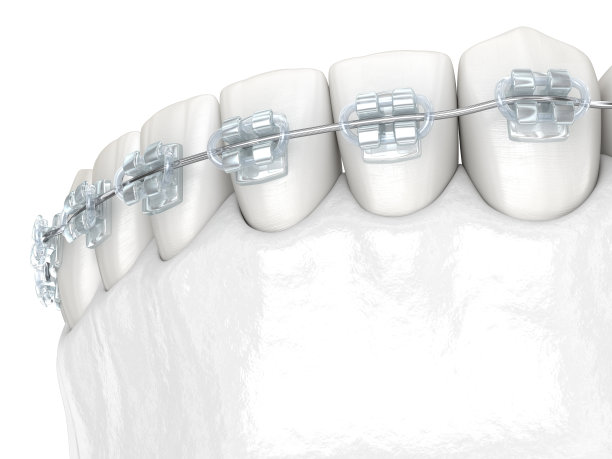Summary: This article explores the profound effects of periodontal disease on both oral health and overall well-being. Periodontal disease, a chronic inflammatory condition that affects the tissues surrounding the teeth, is widely underestimated in its impact. The discussion highlights four key areas: the relationship between periodontal disease and systemic health, its contribution to mental well-being, the socioeconomic factors influencing disease prevalence, and the importance of preventive measures. By understanding these interconnected elements, we can pave the way for better future outcomes in managing periodontal disease and enhancing the quality of life for individuals affected by it.
1. Connection Between Periodontal Disease and Systemic Health

Research has shown that periodontal disease is not just a localized oral issue but also a contributing factor to various systemic health problems. Conditions, such as cardiovascular diseases and diabetes, have been linked to periodontal disease due to the systemic inflammation it causes. Bacteria from infected gums can enter the bloodstream, exacerbating these conditions.
Moreover, studies indicate that individuals with diabetes are at a greater risk of developing periodontal disease, which, in turn, can complicate diabetes management. This bidirectional relationship emphasizes the necessity for healthcare providers to consider oral health as an integral part of overall medical care.
Addressing periodontal disease can, therefore, lead to improved systemic health outcomes. Effective management can reduce inflammation levels and lower the risk of complications associated with chronic diseases. It underlines the importance of routine dental visits and timely interventions for maintaining both oral and systemic health.
2. Impact on Mental Well-being
The influence of periodontal disease extends beyond physical health; it significantly impacts mental well-being as well. Individuals suffering from periodontal disease often experience discomfort and pain, leading to social withdrawal and a decrease in self-esteem. The embarrassment associated with oral health issues can deter people from engaging in social interactions.
Furthermore, a notable body of research suggests a correlation between oral health and psychological conditions, such as anxiety and depression. The stress and anxiety surrounding dental visits could further aggravate the condition, creating a vicious cycle that compromises both mental health and oral hygiene.
Addressing periodontal disease can foster improved mental health outcomes. By promoting dental health literacy and providing accessible care, communities can reduce the psychological burdens associated with oral diseases. Integrative approaches that include mental health support as part of dental care can further enhance overall well-being.
3. Socioeconomic Factors Influencing Disease Prevalence
The prevalence of periodontal disease is heavily influenced by socioeconomic factors. Individuals from lower socioeconomic backgrounds often have limited access to dental care, awareness of oral hygiene practices, and resources for maintaining good dental health. This disparity often exacerbates the incidence and severity of periodontal disease.
Moreover, education plays a critical role in determining ones understanding of oral health. Communities with lower health literacy may not prioritize dental visits, leading to an increase in untreated periodontal disease cases. Public health initiatives targeting these communities can play a crucial role in addressing the imbalance.
By understanding the socioeconomic determinants of periodontal disease, policymakers and health educators can implement targeted interventions. Providing educational resources, improving access to dental care, and promoting preventive measures can reduce the disease burden among disadvantaged populations and contribute to more equitable health outcomes.
4. Importance of Preventive Measures
Preventive measures are crucial in combatting periodontal disease and ensuring long-term oral health. Regular dental check-ups, professional cleanings, and proper oral hygiene practices are essential in detecting and preventing the progress of periodontal disease. Encouraging routine dental visits can help identify early stages of gum disease before they escalate to severe conditions.
Community education about proper oral hygiene practices is equally important. Raising awareness about the importance of techniques such as flossing and mouth rinsing can empower individuals to take charge of their oral health. Moreover, integrating these practices into daily routines can significantly reduce the incidence of gum disease.
Finally, tailored public health programs that focus on prevention can lead to substantial improvements in community oral health. By promoting preventive care and emphasizing its significance, we can not only minimize the risk of periodontal disease but also enhance overall health and well-being.
Summary:
Understanding the impact of periodontal disease on oral and overall health is vital to improving health outcomes in the future. By addressing systemic connections, mental health effects, socioeconomic influences, and preventive measures, we can establish a comprehensive approach to managing periodontal disease.
This article is compiled by Vickong Dental and the content is for reference only.
Vickong Dental
Vickong Dental is a large medical group established in Hong Kong in 2008 by professors from well-known medical universities in Guangdong and Hong Kong, as well as medical doctors from key national '985' universities (including Master's supervisors and senior professors). The chain of branches brings together expert dentists with PhDs and Master's degrees from Hong Kong and Mainland China, committed to providing high-quality dental treatment.
"Vickong Dental Practices the University Motto of 'Healing and Serving Society,' with a Stable Operation for Sixteen Years. It Has Been honored with Hong Kong Enterprise Leaders's Choice,' and is a Global Trusted Implant Center for the Nobel Implant System. Recommended by Hong Kong Metro Broadcast and Guangdong Television, it Serves Customers from Over Thirty Countries and Regions, Gaining the Trust and Favor of Citizens from the Guangdong-Hong Kong-Macau Greater Bay Area and Surrounding Cities.

Thousands of customers' unanimous praise
The most recognized and highly recommended dental service by customers in the Guangdong-Hong Kong-Macau Greater Bay Area
We Ensure You Receive Detailed Care and Attention Here
Hong Kong standards, Shenzhen prices, Your Trusted English-speaking dentists

Vickong Dental Medical-Grade Instrument Disinfection Process
Vickong Dental Medical-Grade Instrument Disinfection Process

Vickong Dental Chain: A Warm and Comfortable Environment for Treatment






Appointment Hours

Q&A
Why choose Vickong Dental?
Vickong Dental practices the university motto 「Medicine to Benefit Society」, with each branch bringing together highly qualified dentists with doctoral and master’s degrees from Hong Kong and the Mainland, and has maintained seventeen years of steady operation。Recipient of 「2024 Hong Kong Enterprise Leaders Brand」, 「2025 Hong Kong Enterprise Leaders Brand」, a Nobel Biocare Global Trusted Implant Center, and a brand recommended by Metro Radio Hong Kong and Guangdong TV。
To date, we have served customers from more than thirty countries and regions,earning exceptionally high word-of-mouth recognition and trusted recommendations from residents across the Guangdong-Hong Kong-Macao Greater Bay Area and surrounding cities
We have eight major branches in Zhuhai、Shenzhen,and a consultation and service assurance center in Hong Kong,so you can book a free consultation at any time for any questions,which is very reassuring.
If I do not accept the quotation after the CT scan, will I be charged??
No! As long as the actual treatment has not started, you will not be charged any fees.
Will there be any additional charges during the treatment process?
No, there won’t be any additional charges. Before treatment begins, we will clearly explain the treatment plan and its corresponding fees. Only after the patient agrees and signs the consent form will we proceed with the dental service.
Can I pay in Hong Kong dollars?
Yes. Vickong Dental accepts payment in Hong Kong dollars. The amount will be converted based on the exchange rate of the day, and the applicable rate will be clearly communicated to you in advance.
Can I reschedule my appointment at any time?
Yes. Please contact us via **WeChat** or **WhatsApp** as early as possible, providing your original appointment time and details, along with your preferred new date and time slot for rescheduling.













